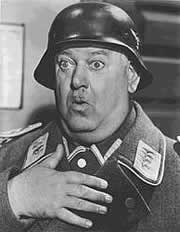Wow. I can't believe no one has started a topic about this yet.
Today is jury selection day for Ken Lay and Jeff Skilling's trial. The judge is hoping it will take one day. (insert laughing dog here)
http://abclocal.go.com/ktrk/story?section=local&id=3850261
Any Lay apologists here, or shall we just make this a topic to throw barbs and cheer on the prosecution?
Today is jury selection day for Ken Lay and Jeff Skilling's trial. The judge is hoping it will take one day. (insert laughing dog here)
http://abclocal.go.com/ktrk/story?section=local&id=3850261
Any Lay apologists here, or shall we just make this a topic to throw barbs and cheer on the prosecution?

